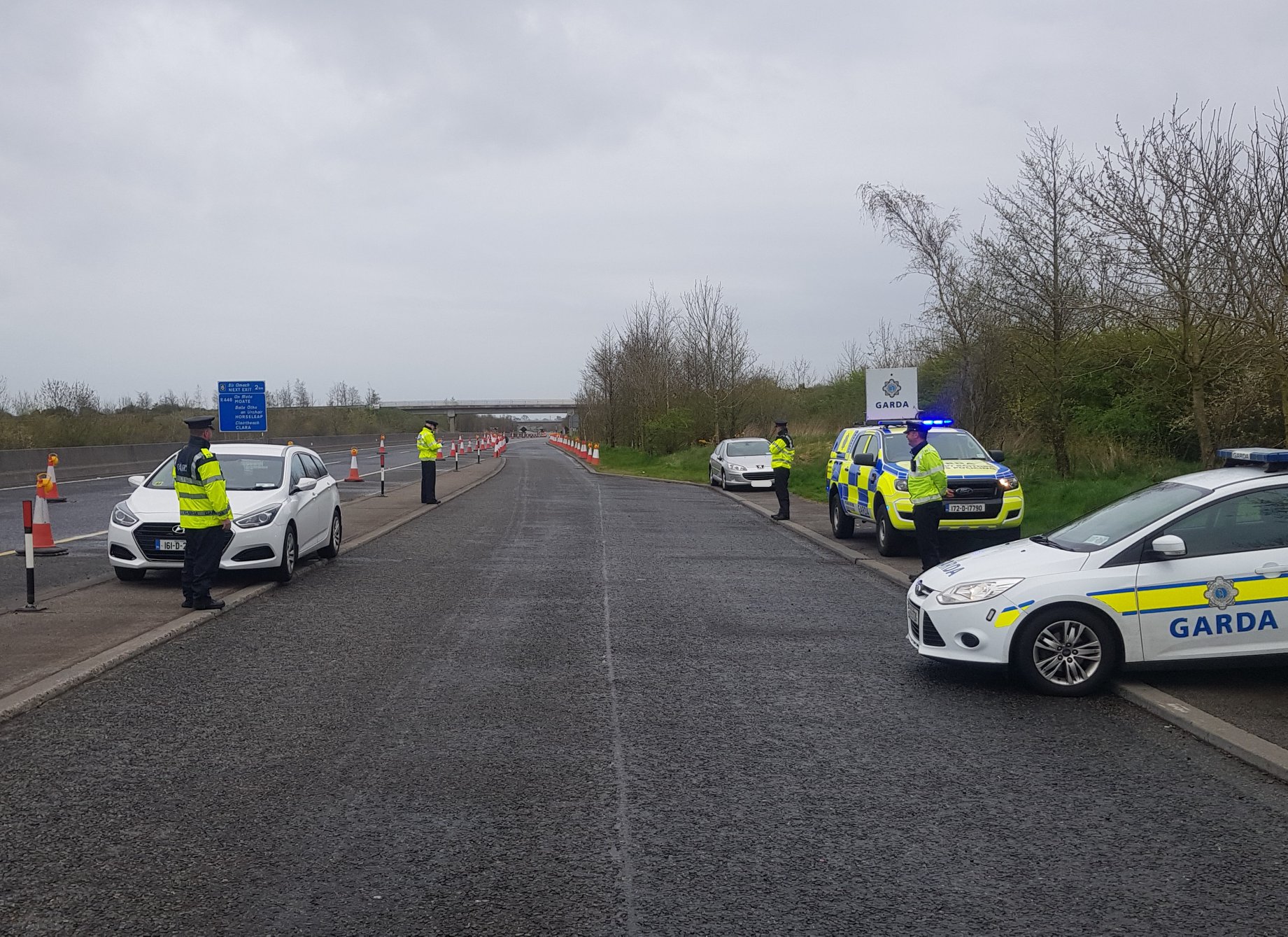Help support Cork Safety Alerts by becoming a ‘Supporter’ and donating a small amount each month to help with the running of our website, server and organisation! Click here to become a CSA Supporter.
In supporting the COVID-19 public health guidelines, An Garda Síochána continues to adopt a graduated policing response based on its tradition of policing by consent. This has seen members of An Garda Síochána engage, educate, encourage and, as a last resort, enforce.
- Gardaí have invoked enforcement powers under the Covid-19 Public Health regulations 289 times since 08 April 2020, 13 times in the last week
- Pre-existing enforcement powers were used in 1,878 incidents
- 88 incidents of spitting and/or coughing against members of An Garda Síochána.
- Over 29,090 COVID-relating vetting applications processed – turnaround time remains one day – no vetting backlog at any point in 2020
[read more]
Gardaí continue to interact with the public on a daily basis, the vast majority are continuing to adhere to the public health guidelines.
In what continues to be a small minority of cases across the country, despite receiving a number of warnings, some individuals were still not willing to take steps to comply with the public health guidelines and the regulations were used under the Health Act 1947- Section 31A- Temporary Restrictions (Covid-19) Regulations 2020. An Garda Síochána invoked the Public Health regulations on 6 occasions over the June Bank Holiday weekend out of thousands of interactions with the public in open spaces and at checkpoints.
From 8 April, which was when the regulations came into effect, until 30 May 2020 inclusive, Gardaí have invoked the regulations 289 times. These include both arrests and incidents without arrest where name and address details were taken for consultation with the DPP on the decision to issue charges. Arrest remains a last resort.
Of the 289 incidents, two (2) were as a result of an instruction from a relevant medical professional as per the Act.
61 of these incidents resulted in an at least one arrest (43 under the Public Health regulations), with the remainder being dealt with by recording name and address and then consulting with the Office of the Director of Public Prosecution.
As per Garda policy in relation to the regulations, in all cases where arrests were made under the regulations, members of An Garda Síochána must consult with the Director of Public Prosecutions on the decision to charge.
To date, in 76 of these incidents a charge or summons has issued. Most incidents involve a single individual but some have resulted in charges against multiple people. The remainder are under criminal investigation.
In addition, pre-existing enforcement powers were used in 1,878 incidents where other offences were disclosed in the course of COVID-19 operations. These range from incidents such as drink driving or disqualified drivers detected at checkpoints, to drugs and weapons seizures, to public order offences.
The number of incidents involving other suspected crimes continues to far exceed the number of cases involving only breaches of Government restrictions.
Commissioner Drew Harris said: “An Garda Síochána continues to see significant public support for the Public Health Guidelines. Many individual, families and small groups took advantage of the good weather over the weekend to enjoy the bank holiday weekend and avail of physical exercise. Most did so with the best efforts to comply with Public Health guidelines. Unfortunately An Garda Síochána did have to intervene in a number of locations to engage, educate, encourage and ultimately enforce the Regulations. An Garda Síochána will continue our community engagement with citizens at key locations such as parks, beaches and natural beauty spots over the coming days.”
From 8 April until 30 May 2020 inclusive, there were 88 incidents of spitting and/or coughing against members of An Garda Síochána.
From 8 April until 30 May 2020 inclusive, members of An Garda Síochána had to use anti-spit guards 63 times.
Garda Commissioner Harris highlighted: “The number of spitting and coughing attacks on Gardaí, while simply carrying out their lawful duties, is reducing but remains unacceptable in any circumstance. An Garda Síochána will continue to treat any such incident against a member of An Garda Síochána or any citizen very seriously. The use of Anti-Spit guards has also reduced. An Garda Síochána will only use anti-spit guards as last resort and in line with the Garda Decision Making Model, which includes at its centre human rights and our Code of Ethics.”
Anti-spit guards provide an additional tactical option to be considered by a Garda, as a last resort in a continuum of graduated response, in circumstances where ‘there is clear evidence of spitting now or where a member believes there is a clear and tangible threat of spitting posed by the subject’.
The Garda policy and use of anti-spit guards will be reviewed by An Garda Síochána in September 2020.
From 12 March 2020 to 01 June 2020, the Garda National Vetting Bureau (GNVB) has processed 29,090 vetting applications for COVID-related roles. This includes applications across medical and healthcare roles, and voluntary groups. GNVB has been fully up-to-date with all vetting applications throughout 2020 with a current turnaround time for vetting applications of one day.
Members of An Garda Síochána do not keep a record of interactions they had with the public where they did not use enforcement powers under the regulations i.e. how many times persons voluntarily turned around at checkpoints, or elsewhere, following engagement, education or encouragement by An Garda Síochána.
[/read]
Want to get €5, absolutely free? Sign up to the ‘Smart’ Debit Card – Curve today, and earn a fiver on us! Find out more here.

